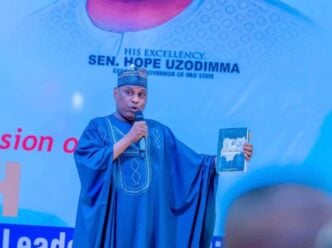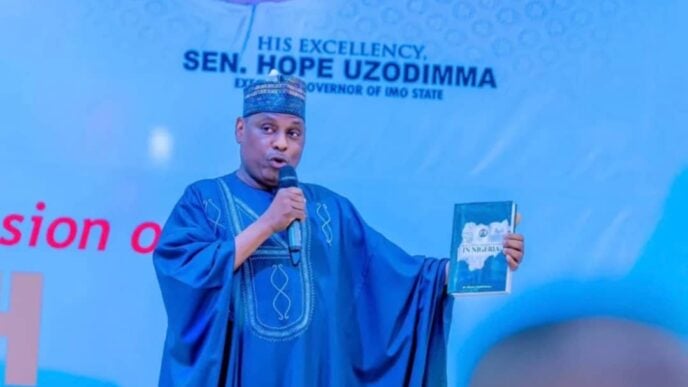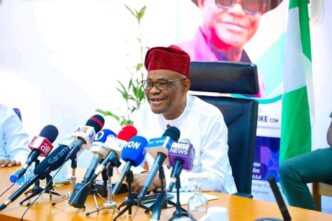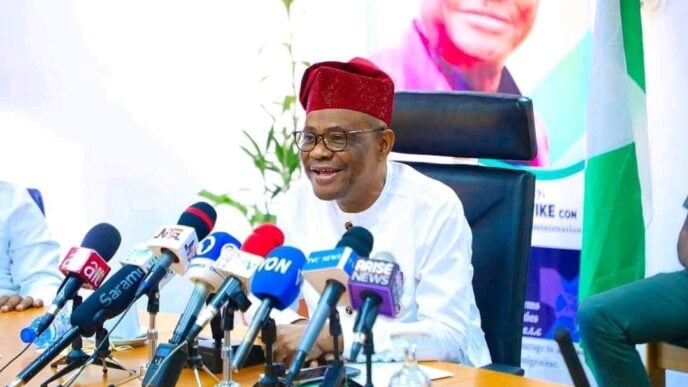BY JOSHUA OLUFEMI
This may sound like yet another lament about Nigeria’s governance dysfunction, but it is not. It is a reflection of how little we know of what we have and how that continues to undermine our development.
Over the weekend, a respected colleague in the civil society space visited me. For years, he has worked on open data, open government, and fiscal transparency issues. Yet, to my surprise and his even greater shock, he confessed he never knew that every state in Nigeria has its own State Bureau of Statistics (SBS). He had always assumed data lived only at the federal level, within the National Bureau of Statistics (NBS). He was speechless when I showed him a 2022 news report on a Dataphyte-led training for all 36 state statistician-generals, held in partnership with the former NBS CEO, Yemi Kale. But he is not alone.
Until 2015, even I, with a background in economics, measurement, and evaluation, did not know these state statistical offices existed until I stumbled on a report by one of the State Bureaus of Statistics. That discovery further dampened my spirit on the underutilisation of Nigeria’s development data architecture.
Advertisement
The true tragedy is not ignorance, but irrelevance. Many of these state statistical bureaus are dummies, buried in state ministries of budgets and economic planning with neither funding nor purpose. It may seem that commissioners of budget and economic planning often view their SBS as ceremonial units, not strategic organs of governance. I have spoken with a few of these statistician-generals; their frustration is palpable.
I asked a state budget and planning commissioner what the number of primary and secondary schools within the state is, and what the fiscal plans are for developing these schools. He did not know the numbers, nor did he know that the state, under a previous administration, had collected geolocation data, mapping every single school. That exchange reveals how subnational governance devalues data.
Now, with President Bola Tinubu’s directive for direct federal allocations to local governments and the supreme court’s ruling enforcing it, civil society and development partners are recalibrating. Many are adding a “third tier” to their interventions by moving beyond federal and state to focus on local government capacity, accountability, and inclusion. This is commendable, but it raises three hard questions:
Advertisement
1. Where is the local government data? What development, demographic, and fiscal data exist at that level, and who curates them?
2. What capacity exists among state and local government actors that could enable them to prioritise data and evidence in governance, beyond mere fiscal accounting?
3. How are we mobilising existing data across federal, state, and local tiers for joined-up decision-making that supports sustainable development?
These questions may sound rhetorical, but they are not. They are urgent action points.
When I ask about local government data, I do not suggest that it doesn’t exist in some form or system. I am asking: who is collecting it, where is it stored, and how can we mobilise the existing data infrastructure across all tiers of government to support evidence-driven decisions? With fiscal autonomy now being extended to local governments, the data infrastructure that should guide this autonomy has now become very important.
The second question about ‘capacity’ goes to the heart of the governance crisis. In demanding accountability from the local governments, the major concern would be: do the local governments have institutional literacy, human capital, and information systems to govern effectively? A local government chairman cannot plan, even with billions, if they don’t know the number of wards, schools, or hospitals in their council. Without interconnected governance between the local, state, and national levels, even the most transparent funding becomes blind spending.
Advertisement
We may continue to write hundreds of investigative stories about corruption, misallocation, and abuse, but we risk missing the fundamental cause: the void of data-driven governance capacity. Take the Abuja Municipal Area Council (AMAC) as an example. Before we question how AMAC spends its funds, we must first know how many schools, hospitals, police stations, and housing units its budget can sustain. What is the council’s own revenue potential? How can they integrate that with federal allocations for long-term planning? These are the questions that reveal capacity gaps and symptoms of corruption. I believe that the first task should be making the data available or beginning the advocacy to ensure the government prioritises data availability for the next budget allocation.
The third question is: How do we make the data talk to one another? How do we ensure that a local government chairman, his council staff, and community stakeholders can use the same data infrastructure as the state and federal ministries? How do the state and federal ministries access data at the local level, such as health information, school enrolment and attendance, farmers, and social relief information, to know the local realities? This is not merely about creating 774 open LG data portals plus 36 state open data portals (as I would really love for us to have); it is about connecting federal and state datasets to local realities, disaggregating them for granular, actionable use.
Beyond these three critical considerations, there is the citizen dimension. For too long, Nigerian governments at the federal and state levels have treated citizens as consumers of government data, not contributors to it. Local government, by its very design, is the natural interface between governance and daily life. We have an opportunity to embed citizen engagement, not as an afterthought but as the organising principle of local data systems. Citizens should help generate the data that shapes their communities, use it to hold their leaders accountable, and see themselves reflected in every dataset that drives development.
To do this, we need a dual infrastructure at the local level:
Advertisement
● A data infrastructure that collects, curates, and shares information for governance and service delivery.
● A listening infrastructure that captures citizen feedback, sentiment, and lived experiences in real time.
Both must inform local budgeting.
Therefore, this is a call to all 36 state governments as they prepare their 2026 budgets: allocate meaningful funding to their State Bureaus of Statistics, not as a token gesture, but as a strategic investment. Each state should identify five to seven critical development sectors — education, health, agriculture, social welfare, infrastructure, and environment, at least — and fund structured data collection and analysis in each.
Advertisement
At Dataphyte, this is the mission that drives us. This is why we created Goloka, a platform that enables citizens in their communities, wards, and local governments to collect and contribute real-time data about their lives, needs, and access to services. Through Goloka, citizens become both subjects and agents of development data, and the government gains a real mirror of its own performance.
Nigeria lacks no data. What we lack is the will to use it, the belief that our governance can be smarter, not just bigger. Until we fix that, we will remain a federation that does not know its true number and its true realities.
Advertisement
Joshua Olufemi is the founder of Dataphyte, a data innovation and media development organisation advancing evidence-led governance and development across Africa.
Advertisement
Views expressed by contributors are strictly personal and not of TheCable.










